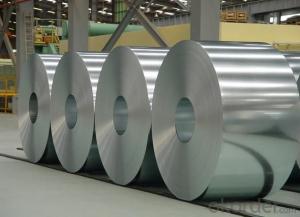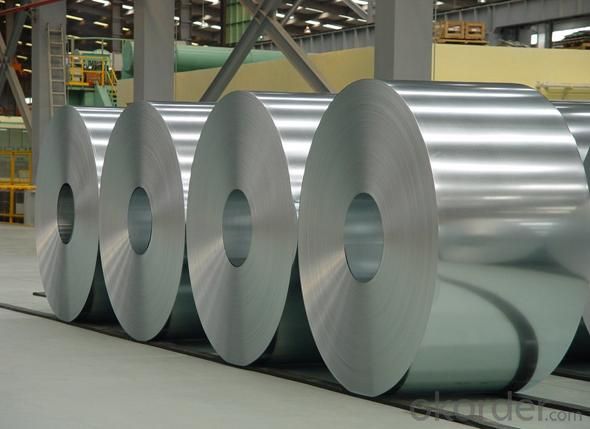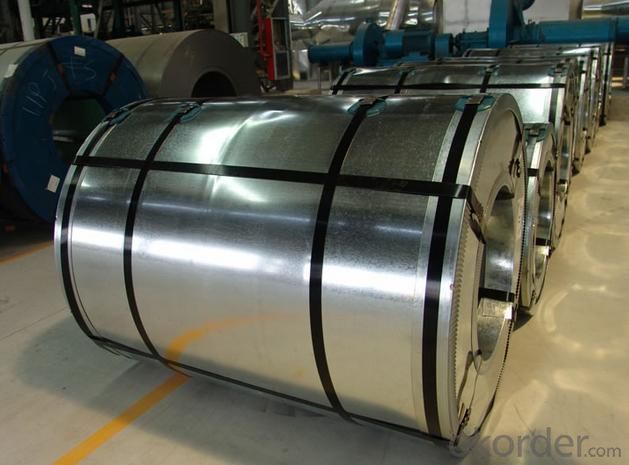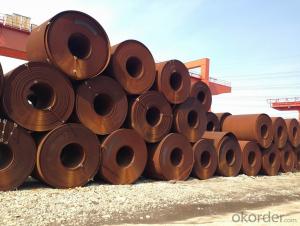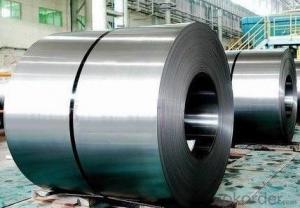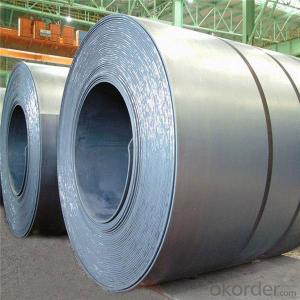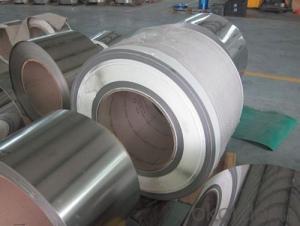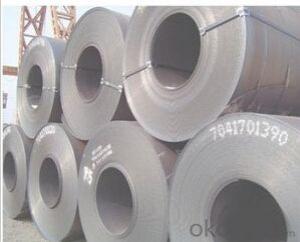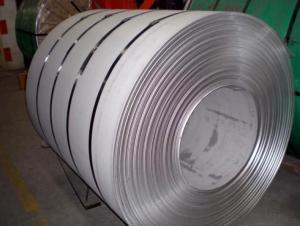Hot Rolled Stainless Steel Coil for Construction
- Loading Port:
- Shanghai
- Payment Terms:
- TT OR LC
- Min Order Qty:
- 25 m.t.
- Supply Capability:
- 10000 m.t./month
OKorder Service Pledge
OKorder Financial Service
You Might Also Like
| Grade: | 300 Series | Standard: | ASTM,AISI,DIN,EN,GB,JIS | Length: | 1000-6000mm |
| Thickness: | 0.3-120mm | Width: | 50-2000mm | Place of Origin: | China (Mainland) |
| Brand Name: | TISCO | Model Number: | hot rolled stainless steel coil | Type: | Coil |
| Application: | construction, decoration,furniture and automobile | Certification: | SGS | Name: | hot rolled stainless steel coil |
| Color: | natural |
Hot Rolled Stainless Steel Coil Specification:
Product name | hot rolled stainless steel coil |
Specification | Thickness: Cold rolled: 0.3-3mm, Hot Rolled: 3-120mm Width: 500-2000mm Length: 1000-6000mm Customized sizes are accepted |
Standard | ASME, ASTM, EN, BS, GB, DIN, JIS, etc |
Finish | NO.1, NO.4, 2B, BA, HL, 8K, Mirror finish and so on |
Material | 201, 202, 304, 304L, 310S, 316, 316L, 410, 420, 430, 441, 800H, 904L |
Brand Name | TISCO, Baosteel, LISCO, JISCO |
Place of Origin | Jiangsu of China (Mainland) |
Technical treatment | Cold Rolled, Hot Rolled |
MOQ | 25Metric Ton |
Port of Loading | SHANGHAI |
Terms of Delivery | FOB, CFR, CIF, CNF, EXWORK |
Terms of Payment | L/C, T/T (30% desipot) |
Packing | Standard export sea-worthy packing |
Delivery time | Within 7days after recieve 30% desipot or as your requirement |
Stock | Ready in stocks |
Grade | C ≤ | Si ≤ | Mn ≤ | P ≤ | S ≤ | Ni ≤ | Cr ≤ |
201 | 0.12 | 0.75 | 7.00 | 0.045 | 0.045 | 1.00-1.28 | 13.70-15.70 |
202 | 0.15 | 1.00 | 2.25 | 0.045 | 0.045 | 4.07-4.17 | 14.00-16.00 |
304 | 0.08 | 0.75 | 2.00 | 0.045 | 0.03 | 8.00-11.00 | 18.00-20.00 |
304L | 0.035 | 0.75 | 2.00 | 0.045 | 0.03 | 8.00-13.00 | 18.00-20.00 |
309 | 0.15 | 0.75 | 2.00 | 0.045 | 0.03 | 12.00-15.00 | 22.00-24.00 |
310S | 0.08 | 1.50 | 2.00 | 0.045 | 0.03 | 19.00-22.00 | 24.00-26.00 |
316 | 0.08 | 1.00 | 2.00 | 0.045 | 0.03 | 10.00-14.00 | 16.00-18.00 |
316L | 0.035 | 0.75 | 2.00 | 0.045 | 0.03 | 10.00-15.00 | 16.00-18.00 |
321 | 0.04-0.10 | 0.75 | 2.00 | 0.045 | 0.03 | 9.00-13.00 | 17.00-20.00 |
405 | 0.08 | 0.75 | 1.00 | 0.045 | 0.03 | 0.06 | 11.5-13.5 |
409 | 0.089 | 1.00 | 1.00 | 0.045 | 0.05 | 0.06 | 10.50-11.75 |
410 | 0.15 | 0.75 | 1.00 | 0.045 | 0.03 | 0.06 | 11.5-13.5 |
420 | 0.16-0.25 | 1.00 | 1.00 | 0.040 | 0.03 | 0.06 | 12.00-14.00 |
430 | 0.12 | 0.75 | 1.00 | 0.045 | 0.03 | 0.06 | 16.00-18.00 |
904L | 0.02 | 1.0 | 2.00 | 0.045 | 0.03 | 23.00-28.00 | 19.00-23.00 |
FAQ:
Acceptable payment term and way?
T/T,L/C, T/T + L/C, D/P
Acceptable price term
FOB CNF CIF DDU CPT
Do you accept OA payment terms?
Yes, sure, but it normally depending on the order value
Do you have QC team?
Yeah, sure, our QC team is very important, they will keep the qualitycontrol for our products.
What is the validity of your quotation?
Normally 7 days.
What is your advantage?
24 hour quick response /Customer oriented/ Credit foremost/ Top quality Excellent
What is your acceptable payment term?
TT,LC,OA etc
- Q: What are the safety regulations for handling steel coils?
- The safety regulations for handling steel coils include wearing personal protective equipment (PPE) such as gloves, safety goggles, and steel-toed boots to protect against injuries. Employees should be trained on proper lifting techniques and use mechanical aids whenever possible to prevent strains and sprains. The storage area should be well-organized, with coils stacked securely to prevent them from falling. Regular inspections and maintenance of equipment, such as cranes or forklifts, should be conducted to ensure safe operations. Additionally, awareness of potential hazards, such as sharp edges or protruding nails, is crucial to prevent cuts or puncture injuries.
- Q: How are steel coils used in the shipbuilding industry?
- Steel coils are used in the shipbuilding industry for various purposes such as constructing the ship's hull, decks, and other structural components. These coils are typically cut and shaped to form different sections, plates, or beams that are then welded together to create the ship's framework. Additionally, steel coils are also used for manufacturing equipment, machinery, and other components required for shipbuilding.
- Q: How do steel coils contribute to durability and longevity in products?
- Steel coils contribute to durability and longevity in products mainly due to their strength, stability, and corrosion resistance. Firstly, steel is renowned for its exceptional strength, making it an ideal material for various applications where durability is crucial. Steel coils, which are essentially tightly wound rolls of steel, provide added strength and structural integrity to products. The stability offered by steel coils is another key factor in enhancing the durability of products. The tightly wound structure of the coils ensures they maintain their shape and resist deformation under heavy loads or extreme conditions. This stability is particularly important in industries such as construction and automotive, where products need to withstand rigorous usage over extended periods. Moreover, steel coils possess exceptional corrosion resistance properties, primarily due to the presence of protective coatings. These coatings, such as zinc or other metallic alloys, act as a barrier against moisture and environmental elements that can cause rust and degradation. By preventing corrosion, steel coils help prolong the lifespan of products, making them more durable and reliable. Additionally, steel coils can be customized to meet specific requirements, such as different thicknesses, widths, or surface finishes. This versatility allows manufacturers to tailor the steel coils to their desired application, ensuring optimal performance and longevity in their products. In summary, steel coils contribute to durability and longevity in products through their strength, stability, corrosion resistance, and customization capabilities. By incorporating steel coils into various industries and applications, manufacturers can ensure their products withstand the test of time, ultimately benefiting consumers with longer-lasting and more reliable products.
- Q: This question gets beat to death from what ive seen online but im going to ask it since im searching for a few new knives. The question is as the titles states what is the best steel for a general purpose knife? I plan on buying several different types of knives, Folders, fixed blades, ect. I will carry them around with me all the time for basically anything i can think of to use it for. The reason i ask this question here is because looking online everyone has a differnt veiw. Some say stainless is too soft while others say carbon will chip and is more brittle. Even looking at just a single type of steel, carbon fort instance everyone has a different opinion as to whats best leaving me kind of lost for what i should get. Maybe the better word would be What is a good general purpose steel?. Any advice is much appreciated!!!!
- Besides the composition of the steel, the tempering is VERY important. I would buy a knife from a company with a good reputation and not worry about what material their metallurgist chose to make a high quality knife. You definitely do not have the knowledge of someone with a degree in metals and many years of experience.
- Q: Can i use steel shot in a remington 870 wingmaster full choke 30 inch barrel. the shotgun is in great shape and about 20 or 25 years old probably. thank you. the steel shot i have got is 12 gauge 2 3/4 in 1550 velocity 1 1/16 oz 2 shot winchester xpert high velocity steel shot
- Remington Steel Shot
- Q: I have a need to connect various stainless steel tubes and fitting together and was wondering how to do it. I know a TIG welder is an option but have heard rumors that there is a way to solder it in much the same way you affix copper pipe. Perhaps with higher heat and different flux. I need step by step and maybe suppliers of the materials. Thanks in advance and please I do not need the call a plumber answers as I've gotten in the past
- Compression Ferrel connections are the best. for small diameter pipe and tubing. A local hardware shop can supply you with the necessary parts and pieces and can also give you a step by step procedure/self help brochure. This will also allow you to install any valve or t or blank in the piping system. The only tools required will be wrenchs and a tube/piping cutter for this type of installation. Brazing is accomplished by heating the base metal and then the rod. There are different types of brazing rod such as brass, bronze etc.. you will also need a can of flux to coat the rod or you can buy the rod pre-coated. If the seam is flat metal you can use the heat from the brazing tip to make the filler rod follow the direction you want. This also includes vertical such as on an auto body. I would suggest practicing this in a safe area. Always utilize a fire extinguisher, brazing goggles, welding gloves and wear a long sleeve shirt for your protection.
- Q: How are steel coils used in the manufacturing of electrical components?
- Steel coils are used in the manufacturing of electrical components primarily as a core material in transformers and inductors. They provide a magnetic path for the flow of electric current, enhancing the efficiency and performance of these devices. Additionally, steel coils are also utilized in the construction of electric motor cores, providing stability and strength to the overall structure.
- Q: I play the guitar and recently found a new type of a guitar called the steel guitar, I don't want to play it or anything it's just I've never seen anything like it before and wonder what the function of it is and what are the differences to a classical guitar
- Different okorder /. If you just like the sound, take a serious look into slide guitar, not the same, but seriously tasty.
- Q: What's the best way to clean granite countertops and stainless steel appliances? My countertops especially always look dull and streaky. Thanks!!!!!!!
- Granite purely needs a wipe with washing liquid in water Dry off applying a micro fibre textile comparable which comprise your chrome steel yet to maintain it finding extreme high quality practice a splash little one oil on cotton wool and wipe over This facilitates look after its shine and lustre
- Q: How is the demand for steel coils influenced by the construction sector?
- The demand for steel coils is heavily influenced by the construction sector. Steel coils are a vital component in the construction industry as they are used for a wide range of applications such as structural framework, roofing, fencing, and reinforcement. The construction sector's demand for steel coils is driven by various factors. Firstly, as the construction industry experiences growth and expansion, there is an increased need for steel coils to meet the rising demand for new infrastructure, commercial buildings, and residential properties. This includes the construction of bridges, highways, airports, office complexes, residential towers, and more. Secondly, the construction sector's demand for steel coils is influenced by economic conditions. When the economy is performing well and there is increased investment in construction projects, the demand for steel coils tends to rise. Conversely, during economic downturns or recessions, the construction sector slows down, leading to a decrease in demand for steel coils. Additionally, technological advancements and changes in construction techniques also influence the demand for steel coils. As new construction methods and materials are introduced, the use of steel coils may increase or decrease depending on their compatibility and effectiveness in these new applications. For example, the use of pre-engineered steel buildings has gained popularity, increasing the demand for steel coils. Moreover, government policies and regulations play a crucial role in shaping the demand for steel coils in the construction sector. Government initiatives promoting infrastructure development, sustainable construction practices, or energy-efficient buildings can significantly impact the demand for steel coils. For instance, incentives for green buildings may drive the use of steel coils in construction projects aiming for LEED certification. In conclusion, the demand for steel coils is closely tied to the construction sector. Economic conditions, construction activity, technological advancements, and government policies all influence the demand for steel coils in the construction industry. Understanding these factors is essential for steel manufacturers and suppliers to effectively meet the needs of the construction sector.
Send your message to us
Hot Rolled Stainless Steel Coil for Construction
- Loading Port:
- Shanghai
- Payment Terms:
- TT OR LC
- Min Order Qty:
- 25 m.t.
- Supply Capability:
- 10000 m.t./month
OKorder Service Pledge
OKorder Financial Service
Similar products
Hot products
Hot Searches
Related keywords
